11 Fruit Plants Perfect for Container Gardening
Growing fruit in containers or pots is a great way to enjoy fresh produce, even if you have limited space. Many fruit plants thrive in pots, making them perfect for balconies, patios, or small gardens. These container-friendly fruits require a little attention and the right conditions, but they offer great rewards. If you are looking to grow your own fruit at home, consider these options for an easy and space-efficient solution. Let us explore some of the best fruits that grow well in containers and pots.
This post may contain affiliate links, which helps keep this content free. Please read our disclosure for more info.
Strawberries

Strawberries grow well in containers due to their shallow root system, making them ideal for pots and hanging baskets. Choose a pot that is at least 12 inches in diameter, and ensure it has drainage holes to prevent waterlogging. Strawberries prefer a sunny spot and should be watered regularly to keep the soil moist but not soggy. With proper care, you can enjoy fresh strawberries right from your container in just a few months.
Strawberries thrive in well-drained soil, so it is important to use a good-quality potting mix. Feeding them with balanced fertilizer every few weeks will promote healthy growth and fruit production. As the plants grow, remove any dead leaves to encourage new growth. Strawberries are perfect for small spaces and can be enjoyed even in urban environments.
Tomatoes

Tomatoes are another fruit that grows well in containers, especially small varieties like cherry or patio tomatoes. A large pot of at least 18 inches deep is suitable, allowing the roots to spread and the plant to grow freely. Tomatoes need full sunlight and should be watered deeply once the soil begins to dry out. You may need to support the plant with stakes or a tomato cage as it grows.
Tomatoes thrive in nutrient-rich, well-draining soil. For the best results, use a potting mix designed for vegetables, and ensure the pot has sufficient drainage. Regular feeding with a high-potassium fertilizer will help boost fruit production. Growing tomatoes in containers is ideal for small gardens, patios, or even balconies.
Lemon Trees
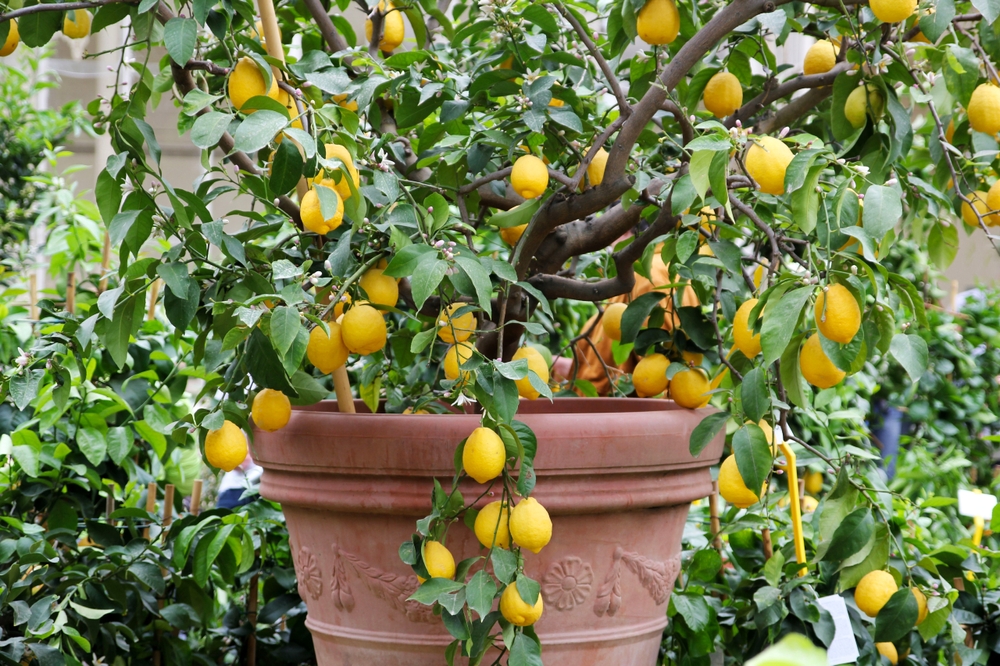
Lemon trees can be grown in containers, making them an excellent choice for those with limited space or colder climates. Choose a pot that is at least 18 inches in diameter with good drainage to allow the roots to grow freely. Lemon trees need full sun for at least 8 hours a day, so place them in a sunny spot. Water the plant regularly, but be sure not to overwater, as this can cause root rot.
Use a well-draining potting mix designed for citrus plants to ensure healthy growth. Lemon trees benefit from occasional feeding with a balanced, slow-release fertilizer. Keep the plant sheltered from harsh winds, as it can be sensitive to cold weather. Growing a lemon tree in a pot allows you to enjoy fresh fruit even in smaller spaces.
Blueberries

Blueberries are well-suited for container gardening because they have a shallow root system and prefer acidic soil. A pot with a capacity of at least 18 inches in diameter is ideal, and it should have drainage holes to prevent excess water. These plants need a sunny location and require regular watering to keep the soil moist but not soggy. Blueberries also benefit from a yearly application of acidic fertilizer, which helps them thrive.
To ensure healthy growth, use a potting mix specifically formulated for acid-loving plants. You can grow multiple blueberry bushes in separate pots to encourage cross-pollination for better fruit yield. Regular pruning of dead branches will help maintain the shape and promote new growth. Growing blueberries in containers allows you to enjoy this delicious fruit even in small garden spaces.
Peppers
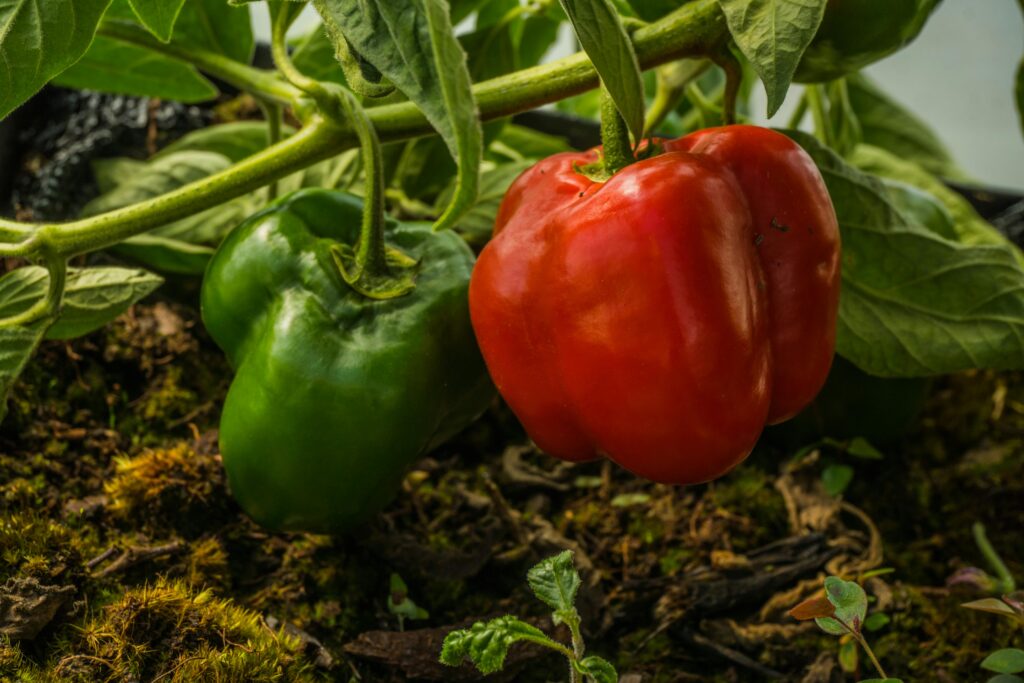
Peppers, both sweet and hot varieties, grow well in containers as long as the pot is large enough to accommodate the plant’s roots. A 12 to 14-inch pot is ideal for peppers, ensuring that there is enough space for root expansion. Peppers need full sun and should be watered regularly to keep the soil evenly moist. Be sure to provide good drainage to prevent waterlogging, which can harm the roots.
Use a high-quality potting mix for vegetables to provide the necessary nutrients for healthy pepper growth. Fertilizing with a balanced mix once a month will support fruit production. As the plants grow, you can stake them for support, especially for larger pepper varieties. Container gardening allows you to grow peppers in small spaces like balconies, patios, or even indoors with adequate lighting.
Herbs
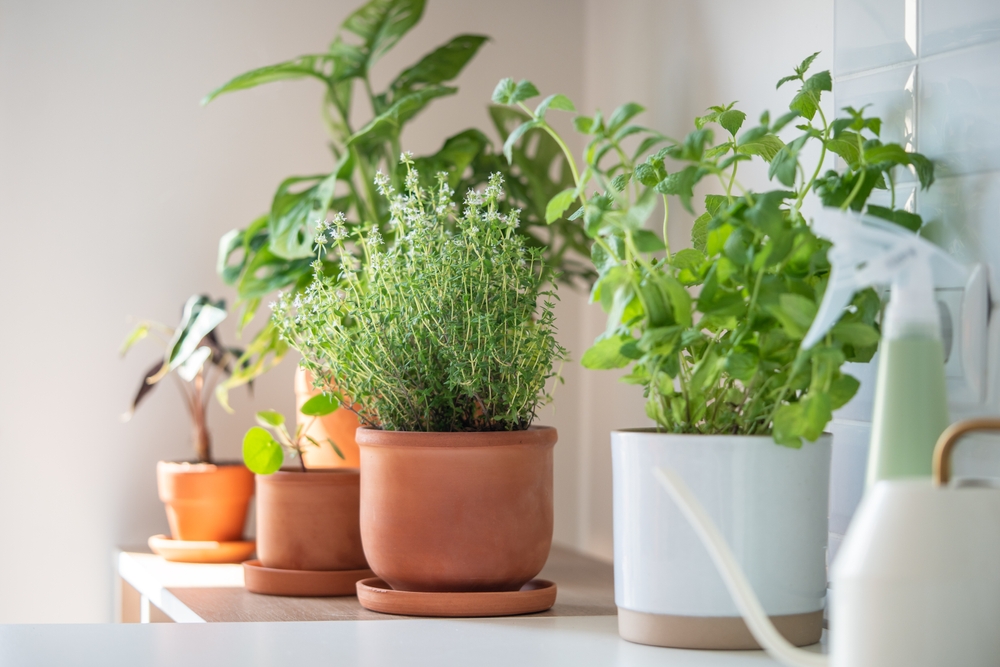
Herbs like basil, mint, and thyme are excellent choices for container gardening because they do not require much space and thrive in pots. Small containers, such as 6 to 8-inch pots, are perfect for growing individual herbs, but larger containers can hold multiple plants. These herbs need full sunlight for several hours each day and should be watered regularly to keep the soil slightly moist. They are generally easy to maintain and can grow quickly with the right care.
Use a well-draining potting mix and ensure that the container has adequate drainage holes. Herbs benefit from occasional trimming to encourage fresh growth and prevent them from becoming leggy. Fertilizing with a diluted liquid fertilizer once a month will promote healthy growth. Growing herbs in containers allows for easy harvesting and adds flavor to your meals, even if you have limited garden space.
Apples (Dwarf Varieties)
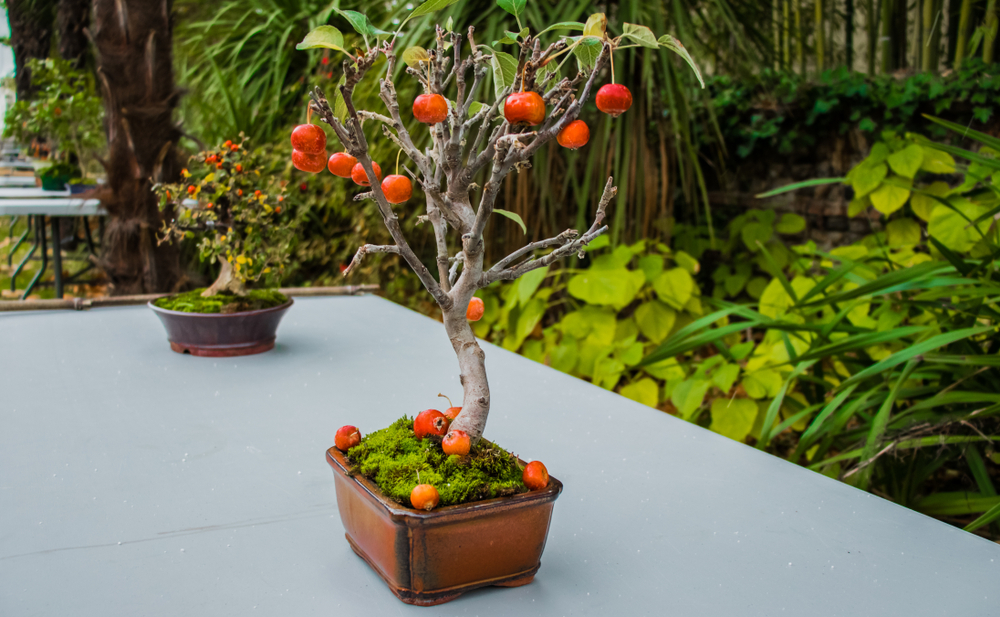
Dwarf apple trees are perfect for container gardening due to their compact size and manageable root systems. A pot that is at least 20 inches deep is ideal for these trees, allowing the roots to grow without restriction. Dwarf apple trees need full sun and should be watered deeply but infrequently to avoid overwatering. With proper care, you can expect your first apples in just 1 to 2 years.
Dwarf apple trees benefit from cross-pollination, so it is recommended to plant at least two varieties in separate pots for better fruit production. A well-draining, slightly acidic soil mix is essential for healthy growth. Regular pruning helps maintain the shape of the tree and encourages more fruit. Growing apple trees in containers is a great way to enjoy fresh apples in limited spaces.
Raspberries
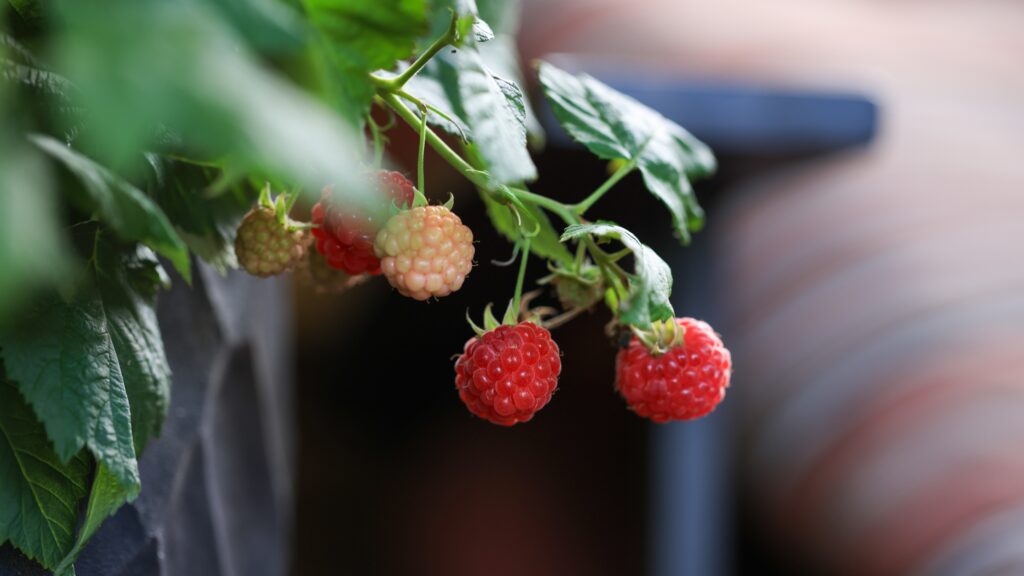
Raspberries are another fruit that can be successfully grown in containers, especially in cooler climates. Choose a large pot, at least 18 inches in diameter, with plenty of space for the plant to spread. Raspberries prefer full sun and should be watered consistently to keep the soil moist. In containers, it is important to ensure proper drainage to prevent water buildup that can lead to root rot.
Use a well-draining potting mix, and consider adding organic compost to enhance the soil’s nutrients. Raspberry plants will benefit from being pruned regularly to remove dead canes and encourage new growth. If possible, provide a trellis or support for the plant to climb. Growing raspberries in pots allows you to enjoy this delicious fruit in limited space or on a balcony.
Grapes
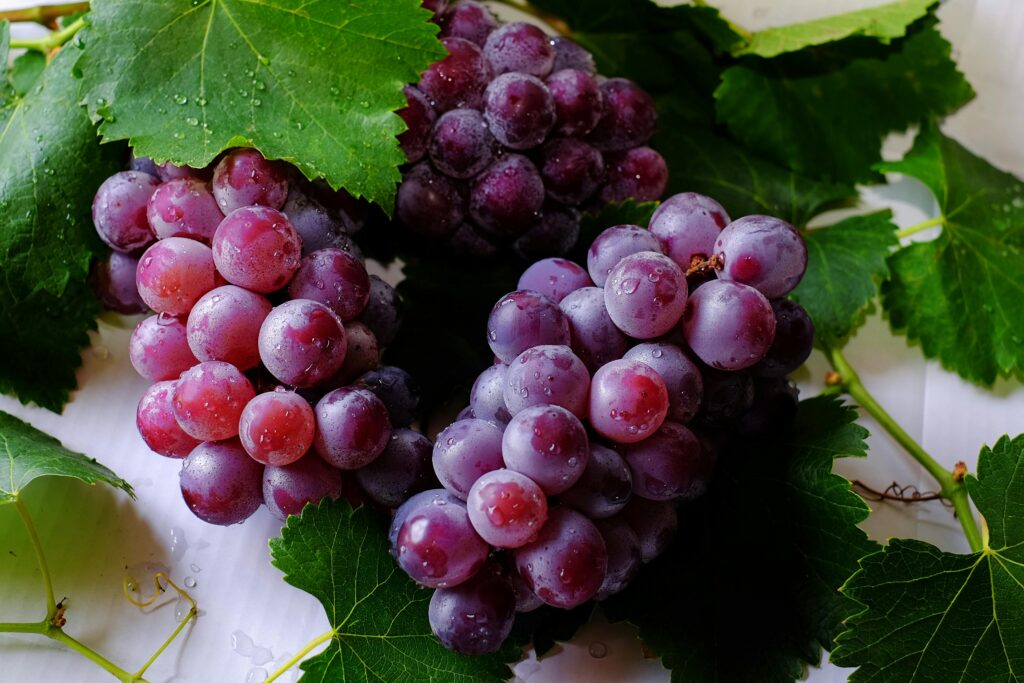
Dwarf grapevines are ideal for container gardening as they are smaller and more manageable than their larger counterparts. A pot that is at least 18 inches deep is suitable for growing dwarf grapevines, which can thrive in a sunny location. Grapevines require a well-drained soil mix and need regular watering to keep the soil evenly moist, especially during fruiting season. With proper care, grapevines can produce small, sweet fruit in about 2 to 3 years.
Dwarf grapevines benefit from being trained to grow vertically, so consider using a trellis or support system for the vines. These plants are relatively low-maintenance and only require occasional fertilization during the growing season. They are perfect for small gardens, patios, or balconies where space is limited but a vineyard-like experience is desired. Growing grapes in containers is an excellent way to enjoy homegrown fruit without the need for a large garden.
Figs
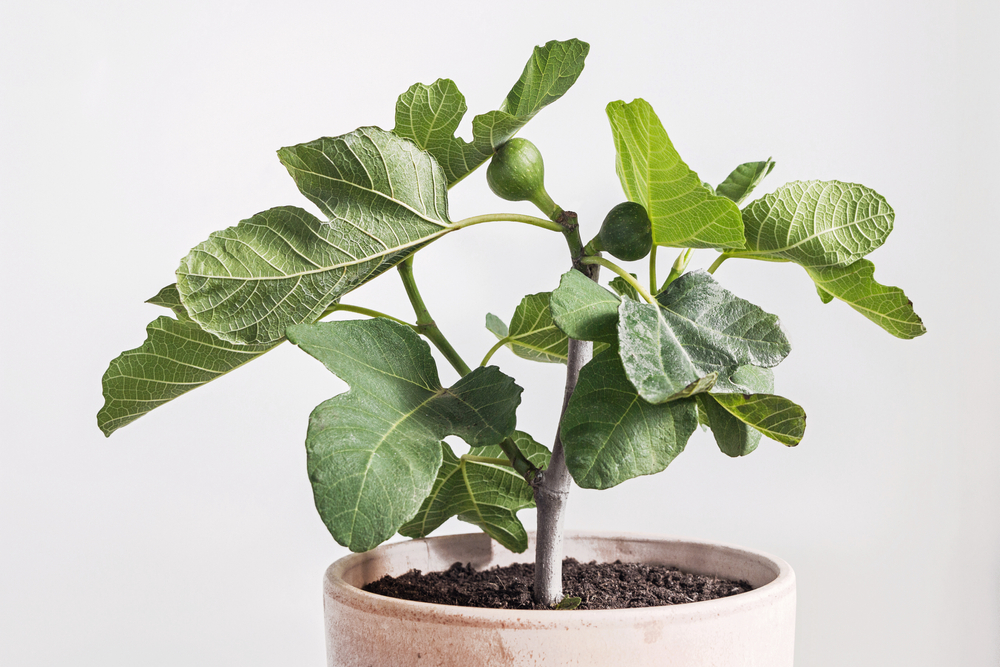
Dwarf fig trees are well-suited for container gardening, making them ideal for small spaces. A large pot of at least 16 inches deep is recommended to accommodate the tree’s roots. Figs thrive in full sun and need regular watering, but they should not be overwatered, as this can cause root rot. These trees can produce sweet, delicious figs in about 2 years, depending on care and climate.
Dwarf fig trees benefit from well-draining soil and should be protected from extreme cold temperatures. Pruning can help keep the tree manageable and encourage fruit production. Fertilizing with a balanced fertilizer during the growing season will help the plant thrive. Growing figs in containers allows you to enjoy fresh, homegrown fruit even if you do not have a large garden space.
Kiwi
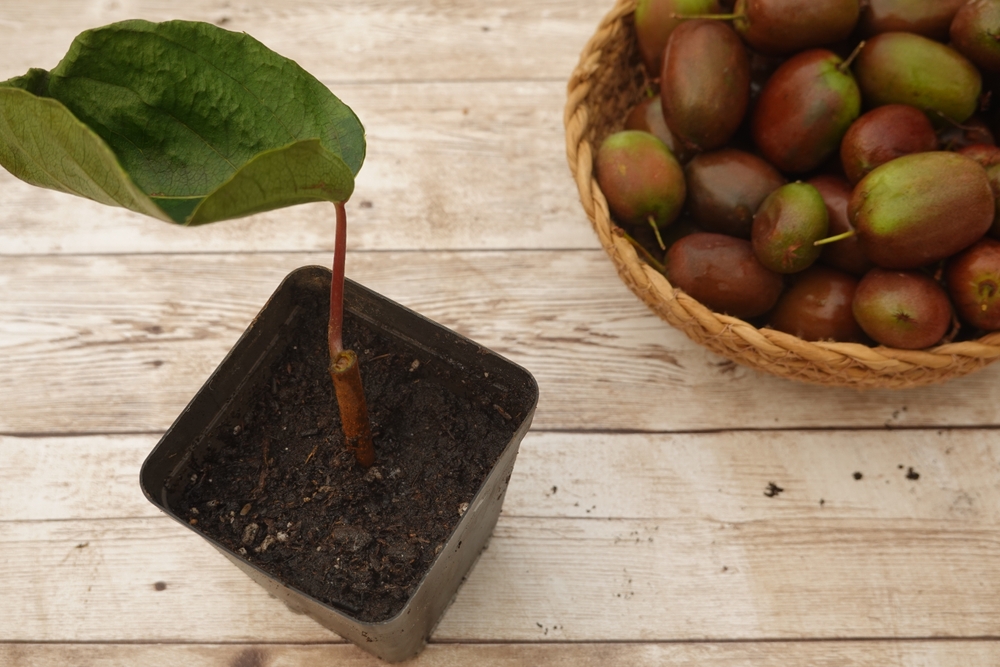
Hardy kiwi vines can be grown in containers, making them a perfect option for smaller spaces or colder climates. A large pot of at least 24 inches deep is ideal for these vigorous vines. Hardy kiwis need full sun and should be watered regularly to keep the soil consistently moist. They can start producing fruit in about 3 years, making them a worthwhile investment.
Hardy kiwi vines benefit from support structures like trellises or arbors to allow them to climb. They need a well-draining, fertile soil mix to thrive, and occasional fertilization with a balanced fertilizer will support healthy growth. Pruning the vines regularly will help keep them in check and promote better fruit yield. Growing hardy kiwis in containers provides a unique way to enjoy fresh, small kiwis without needing a large garden.
Container gardening allows anyone to grow delicious fruits and vegetables regardless of space limitations. Start planting today, and experience the joy of gardening in small spaces.
This article originally appeared on Avocadu.
